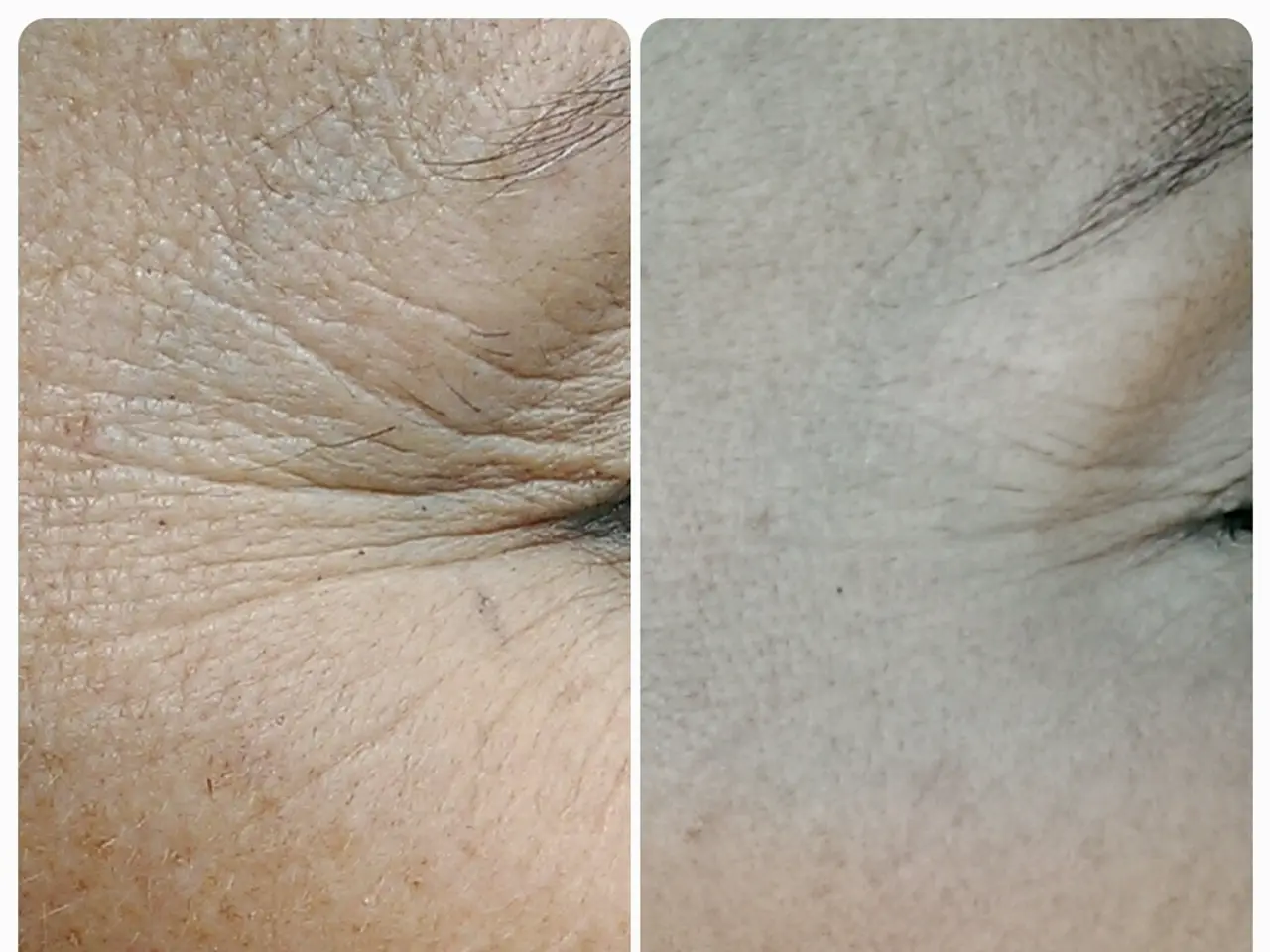Skin Lesions: Images, Root Causes, and Remedies
In the realm of skin health, various bumps can appear, each with its unique characteristics. This article aims to provide a clear understanding of common skin bumps that may affect individuals with black skin, focusing on acne, as well as other conditions.
Acne, a common skin condition, can cause raised bumps on the skin, including pimples or zits. Blackheads and whiteheads are early forms of acne, while papules and pustules are slightly larger. Acne treatment for black skin typically involves a combination of topical acne medications like benzoyl peroxide, salicylic acid, retinoids, and antibiotics. Natural oils and moisturizers such as black seed oil, aloe vera, shea butter are also commonly used for their anti-inflammatory and antibacterial properties. In more severe or persistent cases, oral medications like Accutane (isotretinoin) may be prescribed.
Managing post-inflammatory hyperpigmentation is an essential consideration when treating acne on black skin, as darker pigmentation can linger after acne heals. Treatments that reduce inflammation and support even skin tone are often emphasized.
Beyond acne, there are other skin bumps you might encounter. Boils are hard, painful lumps filled with pus, while blisters are bubbles containing bodily fluids that develop from heat, friction, or chemical exposure. Both are usually harmless but can be painful.
Skin growths like seborrheic keratosis, warts, and molluscum contagiosum may also appear. These growths are typically benign, but it's essential to consult a doctor if you're unsure.
Certain conditions, such as melanoma, basal cell carcinoma, and squamous cell carcinoma, can present as bumps on the skin. These are serious conditions, and prompt medical attention is crucial.
In some cases, skin bumps can be the result of allergic reactions or parasitic infections like scabies. Hives, or urticaria, and impetigo are examples of such conditions.
It's crucial to remember that not all skin bumps require medical attention. However, if you have concerns about a bump, it's always best to seek medical advice.
In conclusion, understanding skin bumps is essential for maintaining good skin health. By being aware of the various types of bumps and knowing when to seek medical help, you can ensure a healthier, clearer complexion.
- Skin bump types like acne, which includes pimples and zits, require specific treatment for black skin, involving topical medications and natural oils.
- Beyond acne, boils and blisters, commonly harmless but painful, can be skin bumps you might encounter.
- Other benign skin growths, such as seborrheic keratosis, warts, and molluscum contagiosum, may also appear and should be checked by a doctor.
- Serious conditions, like melanoma, basal cell carcinoma, and squamous cell carcinoma, can present as bumps on the skin and demand immediate medical attention.
- Allergic reactions or parasitic infections, such as scabies, can also cause skin bumps, with hives and impetigo being examples.
- Sufferers of depression, COPD, diabetes, obesity, atopic dermatitis, psoriasis, and other medical-conditions should prioritize skincare as part of their health-and-wellness routine.
- Predictive science plays a significant role in identifying and treating skin bumps, ensuring appropriate medical interventions.
- In the realm of skincare product selection, products marketed with phrases like GLP (good laboratories practice) ensure the highest product standards for skin conditions.
- Skin-care is key to maintaining a healthy complexion, as understanding various skin bump types and knowing when to seek medical help can help you achieve a clearer, more even skin tone.




